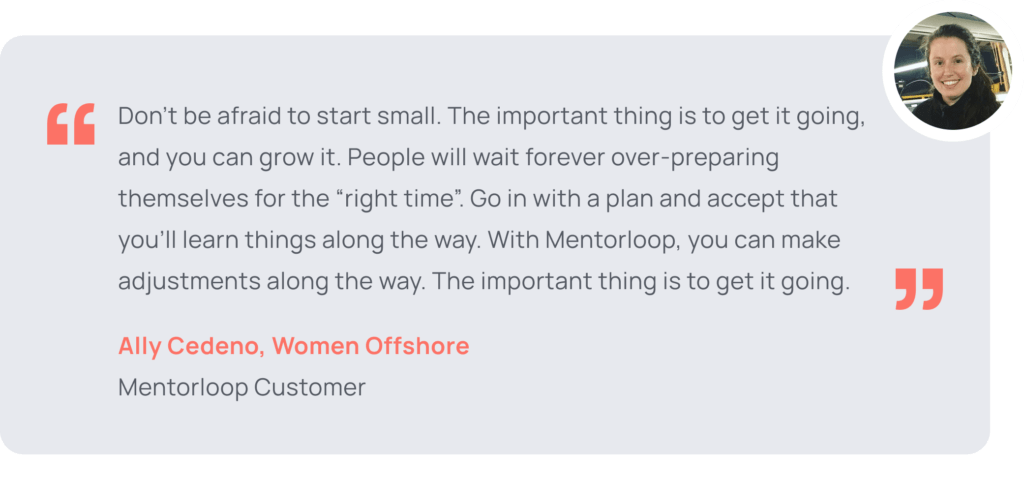Mentoring for Diversity, Equity,
and Inclusion
Create opportunities for belonging where everybody benefits.
Required diversity training can only do so much in the face of the difficulty of fostering belonging and understanding.
Creating opportunities for conversations through DEI mentoring programs mean you avoid performative actions and ensure real, lasting change towards a more inclusive and equitable working environment or community.
Reap the benefits of a vibrant and inclusive workforce and community.
When everyone is welcome to bring their whole selves into the places where they work and interact with others, everyone benefits - from the individuals in your teams, the organisation itself, and the communities we live in.
- Increase in productivity, creativity, and innovation
- Higher and better engagement
- Faster problem solving
- Better decision-making
What do DEI mentoring programs look like?

Having the opportunity to connect with a role model can be an irreplaceable experience for a woman who is entering the workforce. Fitted for Work is providing valuable support and guidance through mentoring, by offering participants a chance to help women secure employment and gain life skills.

Australia’s largest LGBTQIA+ Mentoring Program, Out for Australia, helps graduates and those in the early stages of their career face uncertainties or anxieties about how their sexual orientation, gender identity or intersex status may impact their professional careers.

Women are more likely than men to be paid less, experience fewer promotions, and leave the industry altogether (often before the age of 35). Girls in Tech is passionate about changing this for good through generational change, starting by supporting young women around the world to build careers in tech.
Every mentoring type covered
- One-on-One mentoring
- Group mentoring circles
- Just in time / Flash / Spot mentoring
- Reverse mentoring
- High potential programs
- Cross-functional / Cross-organisational
For every mentoring goal in mind
- Strengthen ties between team members
- Share knowledge, skills, and achieve goals
- Create a deeper sense of inclusion and belonging
- Provide an additional form of networking
- Connect your community across regions
- Elevate learning and development
Amplify existing diversity initiatives by enabling one-to-one connections
In 2020, events involving racial injustice in the USA meant that for the first time, deep and candid conversations around diversity and inclusion were happening within the U.S. Tennis Association. However, there was still some reluctance and discomfort around how to openly and respectfully discuss these topics in the workplace.
Discover how the USTA Diversity & Inclusion team used their mentoring program to increase the effectiveness of existing DEI initiatives and foster greater understanding of different cultural backgrounds, all while providing a safe environment for employees to learn about and share their experiences.
The best mentoring happens where you're already operating
Mentorloop’s suite of integrations are designed to weave mentoring into your own eco-system with ease.

Get started with Mentorloop Pro
Not sure where to start?
In just four easy steps, start building your bespoke program and be guided through key decisions around program goals, matching methodologies and recruitment strategies.
Explore your new program in demo mode and don’t pay a penny until you’re ready to invite your mentors and mentees.

Discover why
people leaders
choose Mentorloop

Trusted by over 100,000 people worldwide

